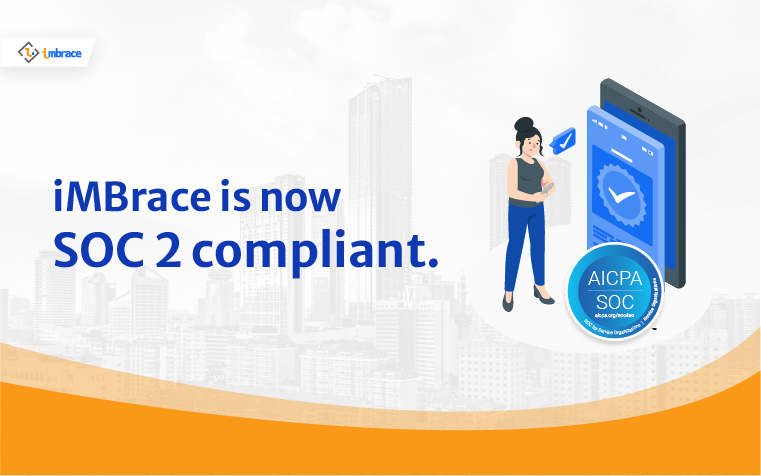
The Importance of a Social CRM System: Why Your Business Can’t Afford to Go Without It
Overview
"In today's digital world, businesses need a good CRM system to compete. But more than traditional ones is necessary with social media around. Yet, more than traditional CRM systems are required with the advent of social media. Enter the social CRM system, which can change the game and transform how businesses interact with customers. In a world where customers expect seamless omnichannel experiences, it's crucial not to isolate your social media presence from your other touchpoints and departments. Learn about the perks, how to start, and what mistakes to avoid. It's a vital tool for success! "
What is a Social CRM?
A social CRM system is an advanced tool for managing customer interactions on social media. Businesses can check, engage, and analyze customer behavior to improve experiences and outcomes. This comprehensive system allows companies to effortlessly track customer interactions across different mediums, gaining valuable insights and understanding individual preferences on a deeper level. Moreover, this exceptional technology strives to foster engagement with customers in real-time while facilitating prompt responses to inquiries or complaints through automated workflows such as iMBrace's no code workflow. This not only fosters stronger connections but also provides an avenue for addressing queries or concerns promptly while ensuring exceptional customer experiences. Ultimately, by harnessing the power of social media within the realm of CRM strategies, businesses can improve their overall efficiency in managing customer relationships while simultaneously expanding their online presence and brand reputation.

Benefits of Having a Social CRM System for Your Business
- Gain Valuable Insights
Having a social CRM system is a game-changer for businesses. It gives you access to loads of data from social media platforms, which can help you understand your customers better. You can track how they interact with your brand, their opinions, and what they like. This information is crucial in creating marketing, sales, and customer service strategies that meet their needs and preferences. - Foster Real-Time Engagement with Customers
Customers no longer expect just one-way communication; they crave meaningful conversations and personalized experiences. With this solution at hand, businesses can instantly respond to queries or comments from various social media channels, demonstrating responsiveness and building stronger connections with their clientele. Furthermore, this can be further improved with the help of omnichannel service which centralize all communication channels into one single platform such as iMBrace Omnichannel Messaging Platform. - Proactively Manage Issues
Social CRM systems can help businesses keep their online reputation in check. By keeping an eye on brand mentions on social media, companies can catch potential issues before they become big problems. This proactive approach can turn negative feedback into positive results by dealing with problems. If you have a social CRM system, you can ensure your brand always looks good online, no matter what gets thrown your way. - Better Team Collaboration
A Social CRM system facilitates collaboration among different teams within your organization. Sales, marketing, and customer support can work together seamlessly, sharing valuable customer insights and ensuring a consistent customer experience. This alignment across departments leads to more effective strategies and a unified approach to customer interactions.
Features of a Well Implemented Social CRM System
A good social CRM system should possess several key features to effectively cater to the growing demands of businesses in today's interconnected world. Firstly, it must offer seamless integration with various social media platforms and provide real-time updates on customer interactions. This allows companies to monitor and engage with customers promptly, nurturing meaningful relationships that go beyond mere transactions.
Secondly, an intuitive user interface is crucial to ensure ease of use for employees across different departments. A well-designed dashboard should display comprehensive customer profiles enriched with social media data, which helps staff gain valuable insights into each individual's preferences and behavior patterns.
Furthermore, the ability to track and analyze social media metrics is essential for any effective social CRM system – this enables organizations to evaluate their marketing campaigns, measure engagement rates, identify influencers or brand advocates, as well as understand sentiment analysis through sentiment mining techniques.
Lastly but equally important is the feature of automation within a social CRM system: automation tools offered by workflow sites such as iMBrace can streamline processes such as lead generation or content scheduling while ensuring personalized experiences through targeted messaging based on customer demographics or purchase history information obtained from integrated systems like ERPs or CRMs.
Who Can Benefit from Social CRM Implementation?
In today's highly interconnected and dynamic business landscape, social CRM implementation has become a crucial tool for organizations seeking to establish a strong customer-centric approach. The benefits it offers are not limited to one particular team but extend across different departments within an organization.
- Marketing Team
For starters, the marketing team can leverage social CRM tools to create effective campaigns by analyzing consumer sentiments expressed through online interactions. By identifying trends or patterns shared on these platforms, marketers can tailor their messaging accordingly and craft engaging content that resonates with their target audience. - Sales Team
The sales team can capitalize on social CRM to enhance their customer relationship management processes by tapping into valuable data from various social media platforms. This enables them to gain insights into customers’ preferences, interests, and behaviors, enabling more targeted and personalized selling techniques that result in increased lead generation and higher conversions. - Customer Service Team
Social CRM empowers companies’ customer service teams with access to real-time information about clients and their concerns, allowing for prompt responses and proactive issue resolution – ultimately fostering lasting relationships with customers based on trust and satisfaction.
Common Mistakes to Avoid when Using Social CRM Systems
To make the most of social CRM systems, businesses must avoid standard implementation and usage mistakes. Examples includes:
- Neglecting Social Media Monitoring
One of the primary purposes of a social CRM system is to monitor customer interactions on social media. It’s essential to pay attention to the significance of social media engagement. Keep a close eye on social media mentions, comments, and messages to ensure you remain well-informed and responsive. - Lack of Proper Data Analysis
Social CRM systems generate data that can provide valuable insights into customer behavior and preferences. However, failing to analyze and leverage this data effectively can limit the system’s impact. Regularly analyze data and use it to inform your decision-making processes and strategies. - Over-Automation of Engagement
Social media management can benefit from automation, but it’s important to do it sparingly. More automation can lead to impersonal and generic responses, failing to connect with your audience. Instead, focus on personalized and authentic engagement that reflects your brand’s values. - Over-Automation of Interactions
While automation can be a time-saver, over-automating customer interactions can come across as impersonal. Maintain a balance between automated responses and genuine, human interactions to provide a personalized customer experience. - Not Aligning with Business Goals
Align your social CRM efforts with your business goals, target audience, and customer needs for maximum impact. Without clear alignment, your social CRM system may not deliver the desired results, and your investment in it may not yield the expected returns.

Conclusion
In today's interconnected world, where social media platforms have become an integral part of our daily lives, businesses cannot afford to ignore the importance of a Social CRM system. With nearly 4 billion people actively using social media worldwide, these platforms provide unprecedented opportunities for companies to engage with their customers and build meaningful relationships. Additionally, iMBrace can also empower the Social CRM system of an organizations by integrating various social media platforms into one centralized hub with iMBrace Omnichannel Marketing feature. This not only saves time but also ensures consistent messaging across all touchpoints – boosting brand credibility and fostering stronger customer loyalty in the process. In summary, adopting a well-designed Social CRM system is indispensable for any business aiming to thrive in today's socially connected landscape; it presents unrivaled potential for forging lasting connections with customers while gaining invaluable market insights along the way.
Click here to learn more about how to integrate social media with CRM systems: Social CRM: Integrates Social Media Platforms with CRM systems
| Pros | Cons |
|---|---|
| Valuable Customer Insights: Social CRM allows businesses to access a wealth of customer data from social media platforms. | Overwhelming Data: While data is valuable, an excessive amount of information from social CRM systems can be overwhelming. |
| Competitive Advantage: Businesses that effectively use Social CRM gain a competitive edge by staying ahead of market trends and adapting their strategies accordingly. | Dependence on Social Media Platforms: Social CRM systems are reliant on social media platforms’ availability and functionality. Outages on these platforms can disrupt the system. |
| Comprehensive Features with iMBrace: Implementing Social CRM with iMBrace offers an array of features such as seamless social media platform integration and automation capabilities. | Integration Challenges without iMBrace: Integrating Social CRM with existing systems like ERPs or legacy CRM systems can be complex and time-consuming. |
Join iMBrace and increase your productivity.
FAQ
A Social CRM System is an advanced tool for managing customer interactions on social media. It’s crucial for businesses because it allows them to engage with customers, gain insights, and foster real-time connections, which is vital in today’s digital world.
Learn more:
Social CRM: Integrates Social Media Platforms with CRM systems
Social CRM systems offer several benefits, including gaining valuable insights from social media data, fostering real-time engagement with customers, proactively managing issues, enhancing team collaboration, and offering automation for efficiency.
Learn more about Social CRM:
Social CRM: Integrates Social Media Platforms with CRM systems
iMBrace technology can integrate various social media platforms into a centralized hub, streamline processes, and ensure consistent messaging across all touchpoints, thereby boosting brand credibility and customer loyalty.
Learn more:


